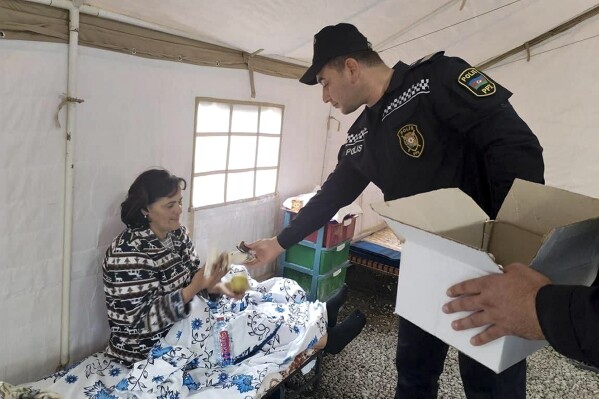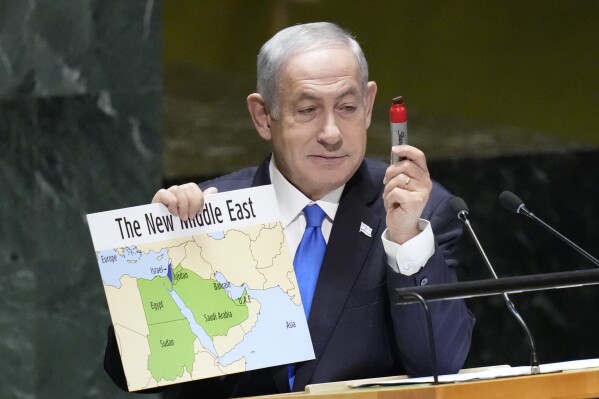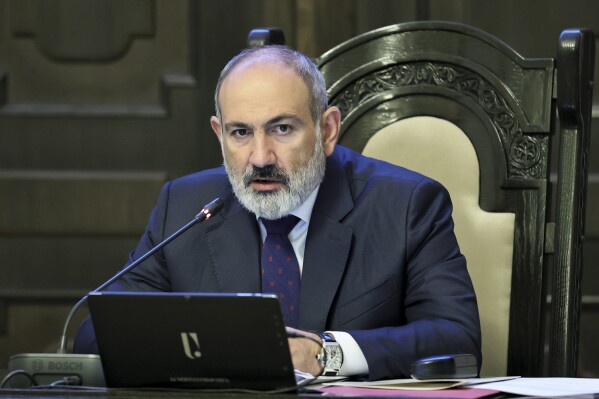First refugees from Nagorno-Karabakh arrive in Armenia following Azerbaijan’s military offensive
YEREVAN, Armenia (AP) — The first refugees from Nagorno-Karabakh have arrived in Armenia, local officials reported Sunday, and more were expected to come after a 10-month blockade and a lightning military offensive this month that resulted in Azerbaijan reclaiming full control of the breakaway region.
Thousands of people were evacuated from cities and villages affected by the latest fighting and taken to a Russian peacekeepers’ camp in Nagorno-Karabakh.
The first group of about 30 people has arrived from Nagorno-Karabakh to Armenia’s Syunik region, Karen Balyan, advisor to the Syunik governor, told Armenian media Sunday. Ethnic Armenian separatist authorities in Nagorno-Karabakh also announced that the Russian peacekeepers would accompany anyone who wanted to leave the region and go to Armenia.
At the same time, two dozen ambulances carried 23 people who sustained severe wounds during the two days of fighting that killed and injured scores of people out of Nagorno-Karabakh to Armenia, the country’s Health Ministry said.
 Aid shipments and evacuations as Azerbaijan reasserts control over breakaway province
Aid shipments and evacuations as Azerbaijan reasserts control over breakaway province
 UNGA Briefing: Nagorno-Karabakh, Lavrov and what else is going on at the UN
UNGA Briefing: Nagorno-Karabakh, Lavrov and what else is going on at the UN
 Russia says Armenian separatists surrender arms after Azerbaijan reclaims Nagorno-Karabakh
Russia says Armenian separatists surrender arms after Azerbaijan reclaims Nagorno-Karabakh
Nagorno-Karabakh is located in Azerbaijan and came under the control of ethnic Armenian forces, backed by the Armenian military, in separatist fighting that ended in 1994. During a six-week war in 2020, Azerbaijan took back parts of Nagorno-Karabak along with territory surrounding the region that Armenian forces had claimed during the earlier conflict.
A Russia-brokered armistice ended the war, and a contingent of about 2,000 Russian peacekeepers was sent to the region to monitor it. Parts of Nagorno-Karabakh that weren’t retaken by Azerbaijan remained under the control of the separatist authorities.
In December, Azerbaijan imposed a blockade of the only road connecting Nagorno-Karabakh with Armenia, alleging that the Armenian government was using the road for mineral extraction and illicit weapons shipments to the province’s separatist forces.
Armenia charged that the closure denied basic food and fuel supplies to Nagorno-Karabakh’s approximately 120,000 people. Azerbaijan rejected the accusation, arguing the region could receive supplies through the Azerbaijani city of Aghdam — a solution long resisted by Nagorno-Karabakh authorities, who called it a strategy for Azerbaijan to gain control of the region.
On Tuesday, Azerbaijan launched heavy artillery fire against ethnic Armenian forces in Nagorno-Karabakh, who conceded to demands to lay down their arms that next day. Nagorno-Karabakh’s final status remains an open question, however, and is at the center of talks between the sides that began Thursday in the Azerbaijani city of Yevlakh.
As part of a cease-fire agreement reached last week, the separatist forces in Nagorno-Karabakh started surrendering tanks, air defense systems and other weapons to the Azerbaijani army. As of Sunday, the process of surrendering arms was still underway, the Azerbaijani military said.
Azerbaijan’s Interior Ministry said Sunday that disarmed and demobilized Armenian troops would be allowed to leave the region and go to Armenia.
___
Associated Press writer Dasha Litvinova in Tallinn, Estonia, and Aida Sultana in London contributed to this report.
Disclaimer: The copyright of this article belongs to the original author. Reposting this article is solely for the purpose of information dissemination and does not constitute any investment advice. If there is any infringement, please contact us immediately. We will make corrections or deletions as necessary. Thank you.





